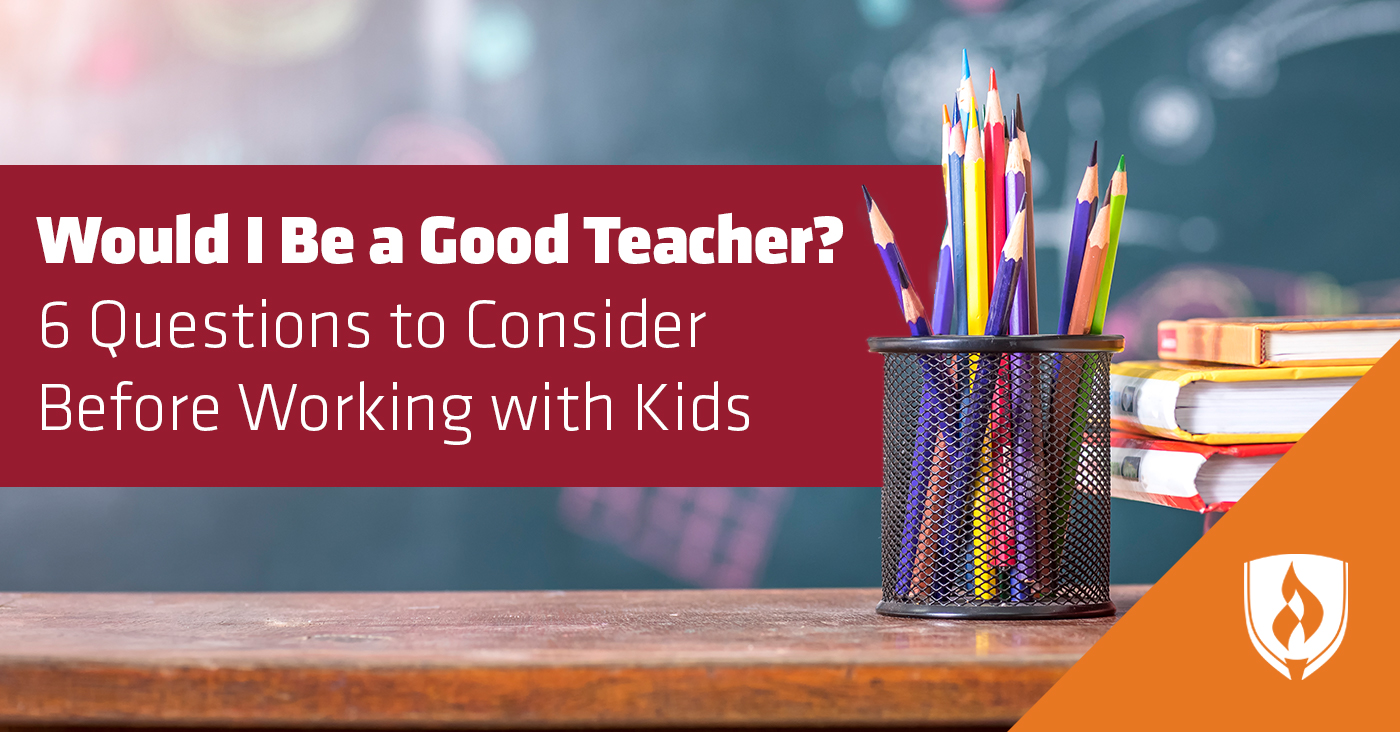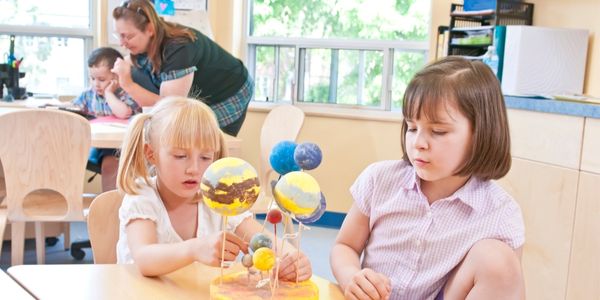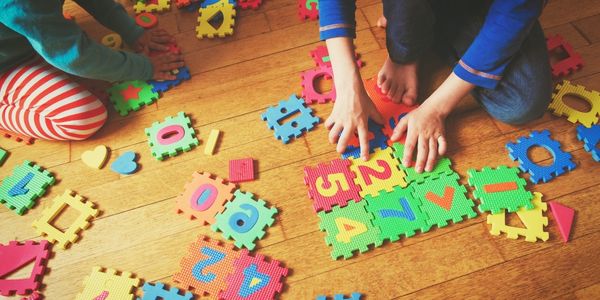Would I Be a Good Teacher? 6 Questions to Consider Before Working with Kids
By Emily Hayden on 11/15/2017

When you see school busses full of children making their way through the neighborhood during your morning commute, do you ever catch yourself daydreaming about your time in school? If you’re the type to get a little nostalgic for the smell of number-two pencils and the sounds of playground chaos during recess, you’ve probably thought about teaching as a potential profession. But idle thoughts only go so far—if you’re seriously considering a career as an educator, it’s important to ask yourself questions to determine whether or not you’d be a good teacher.
To help with your self-evaluation, we asked teachers of varied backgrounds, subjects and grade levels to offer up the questions you need to ask yourself. These questions will help you answer perhaps the most important question—Would I be a good teacher? Explore do introverts make good teachers? to gain insights into how personality traits can impact teaching effectiveness.
If you’re considering teaching, ask yourself:
1. Do I prioritize relationships?
One misconception about teaching is assuming that expertise in a subject area guarantees success in the classroom. What about the 25 or more young people in your charge with personalities, interests, abilities and backgrounds as diverse as the changing moods of your toddler on any given morning?
“The most successful teachers I have ever seen have a way to make that classroom the most special place and time for their students. The kids want to be there because they have faith in and trust the teacher,” says Tal Thompson, a fifth grade teacher. “This only happens with connections. When you connect with kids, you get to create experiences that inspire them.”
Unless you form relationships with each of your students by showing that you care about what makes them unique, all the textbook and technical knowledge in the world will never be enough.
2. Am I committed to improvement?
Any parent knows that teaching kids can be tricky. You have days when your interactions result in the acquiring of a new skill or an outburst free trip to the grocery store. There are also days when that same approach results in an uncontrollable tantrum during the middle of dinner. Do you celebrate the successes? Do you perceive the challenges as opportunities to improve or as failures?
Teachers encounter multiple successes and challenges every day, perhaps every hour. Laine Schmidt, a middle school social studies teacher with 11 years of experience, emphasizes that the field of education is always changing, and educators must be teachable and open to growth. “Teachers who are stuck in their own ways don’t typically excel,” Schmidt says.
Thompson adds that it is not only a teacher’s willingness to improve his or her own teaching, but also the dedication to and celebration of growth within each student. He considers student growth to be one of the most rewarding aspects of teaching.
3. Am I a team player?
“Successful teachers know how to collaborate with other staff members and departments. An effective educator never sits alone in an office,” says Laken Brooks, a college instructor. “The teacher sits in on other teachers' classes, learning new ways to interact with students and present material. He or she seeks opportunities to ask other staff members for curriculum ideas, for co-teaching opportunities and for project inspiration.”
Not only will you be successful if you team up with other teachers to maximize best practices, but you will also flourish by partnering with parents. Parents know their children like no other, and can offer invaluable insight into his or her personality and interests.
4. Can I handle a little chaos?
Life as a teacher can get a bit hectic. The best-laid lesson plans can be upended at a moment’s notice. The best teachers are comfortable rolling with the punches when things don’t go exactly as planned.
Vernetta R. Freeney, a teacher with 10 years of experience working with English as a Second Language students in both elementary school and college, points out the chaos of teaching includes great amounts of paperwork, continuous curriculum changes, parent communication and a variety of student needs. While all of these elements take a lot of effort, teachers are able to find joy and see the value in this perceived chaos.
5. Am I open-minded?
“The most rewarding aspect of teaching is seeing children’s creativity in action,” says Sarah Tippet, a teacher of nearly 35 years and editor of the Homeschool Base blog. “You never know what they are going to say or come up with. They are truly brilliant.”
In the course of your teaching career, you will encounter an incredible diversity in your students’ personalities, ideas, learning styles, cultures, ways of expressing themselves and interests. A good teacher seeks to learn about and celebrate all these differences and avoids passing judgment or making assumptions about any of their students. Intolerance crushes creativity and trust, both of which should thrive in your classroom.
6. Am I organized and resourceful?
While teaching tends to have its share of chaos, the ability to be resourceful and organized can help minimize most issues. Are you good at coming up with plans and then also adjusting them on the fly? Can you make the most out of what’s available to you?
Salpy Baharian, founder of Teacher.org, explains in an article that school budgets often don’t allow for teachers to purchase their ideal curriculum materials. Teachers often need to get creative in generating ways to acquire these materials—whether it is by writing grants, finding deals or simply creating the materials themselves. It is equally important that teachers are organized enough to plan and implement effective beginning, middle and closing parts to their lessons.
Is working with kids for you?
While many of us have memories of what our own school experiences were like, not as many have considered school from a teacher’s perspective. Before making the transition, you want to know if you would be a good teacher. If you were able to answer, “Yes” to most of these questions, an education career might be right for you.
If you think you’d enjoy the work of an early childhood educator, you’ll want to get the inside scoop from educators in the field. Learn more in our article, “7 Things I Wish I Knew Before Becoming a Preschool Teacher.”
RELATED ARTICLES:




